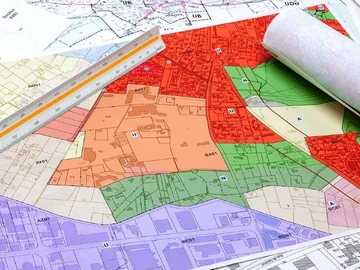The Zimbabwean real estate market is experiencing a remarkable trend in 2025: a surge in land purchases by Zimbabweans living in the diaspora. From South Africa to the UK, Canada, Australia, and the United States, Zimbabweans abroad are snapping up residential and agricultural plots in Harare, Bulawayo, and emerging peri-urban centers like Ruwa, Norton, and Gweru.
But what is driving this diaspora land rush and what does it mean for the future of Zimbabwe’s property market?
1. Land as a Hedge Against Inflation and Currency Risk
One of the top reasons Zimbabweans abroad are investing in land is currency protection. With the introduction of the Zimbabwe Gold (ZiG) currency in 2024, many diaspora investors remain cautious about its long-term stability compared to the US dollar. Land particularly undeveloped plots offers a safe, tangible store of value that’s immune to currency fluctuations.
SEO Keywords: land investment Zimbabwe 2025, diaspora property buyers Zimbabwe, currency risk hedge
2. Affordable Land Prices Compared to Regional Markets
Compared to markets in South Africa, Botswana, or even Mozambique, land in Zimbabwe remains competitively priced. A 1,000m² residential stand in a developing suburb of Harare, for example, can range between USD $10,000 to $25,000, depending on location and servicing a fraction of what the same plot would cost in neighboring countries.
For diaspora Zimbabweans earning in stronger currencies like USD, GBP, or AUD, these prices are seen as a bargain and a rare chance to secure real estate before values appreciate further.
SEO Keywords: affordable land Harare, land prices Zimbabwe 2025, cheap land for sale Zimbabwe
3. Emotional and Retirement Factors
Beyond financial reasons, many in the diaspora view land as an anchor to home. Owning a plot back in Zimbabwe offers security for retirement, future home-building projects, or farming ventures. Emotional ties, family responsibilities, and the desire to have "a piece of home" continue to be major motivators.
SEO Keywords: retirement property Zimbabwe, land for future home Zimbabwe, diaspora emotional investment
4. Demand for Cluster and Gated Developments on the Rise
The demand is not just for raw land; cluster home stands and gated community plots are highly sought-after, especially in areas like Borrowdale, Mount Pleasant Heights, and Pomona. These developments offer security, water, and road infrastructure making them ideal for Zimbabweans planning eventual relocation or holiday homes.
SEO Keywords: gated community stands Zimbabwe, cluster housing developments Harare, secure property investment Zimbabwe
5. Easier Land Purchasing Processes for Diaspora Buyers
Real estate agencies and developers in Zimbabwe have also made it easier for Zimbabweans abroad to buy land. From WhatsApp property tours to digital payment options in USD, the barriers that once made land acquisition difficult have largely been removed.
Leading platforms like Property.co.zw now offer detailed listings, verified sellers, and guidance tailored specifically for the diaspora market.
SEO Keywords: buy land online Zimbabwe, diaspora property buying guide, verified land sales Zimbabwe
Latest Market Data Snapshot (2025):
- Diaspora buyers account for an estimated 35% of urban land purchases in Harare and Bulawayo (Source: Property.co.zw, May 2025).
- Top diaspora markets: South Africa, United Kingdom, Canada, and Australia.
- Most popular areas: Harare West (Ruwa, Norton), Harare North (Pomona, Borrowdale), and peri-urban Gweru.
What This Means for Zimbabwe’s Property Market
The 2025 land-buying wave by Zimbabweans abroad is boosting local development, increasing land values, and transforming peri-urban areas into future growth zones. Developers, local agents, and infrastructure providers stand to benefit from this influx of diaspora capital.
Conclusion: A Once-in-a-Generation Opportunity
For Zimbabweans abroad, 2025 represents a golden window to invest in land before prices rise further. With improved processes, affordable pricing, and emotional as well as financial incentives, it’s no surprise that more diaspora investors are choosing to secure their stake in Zimbabwe’s real estate future.
 Continue with Facebook
Continue with Facebook
 Continue with Email
Continue with Email














